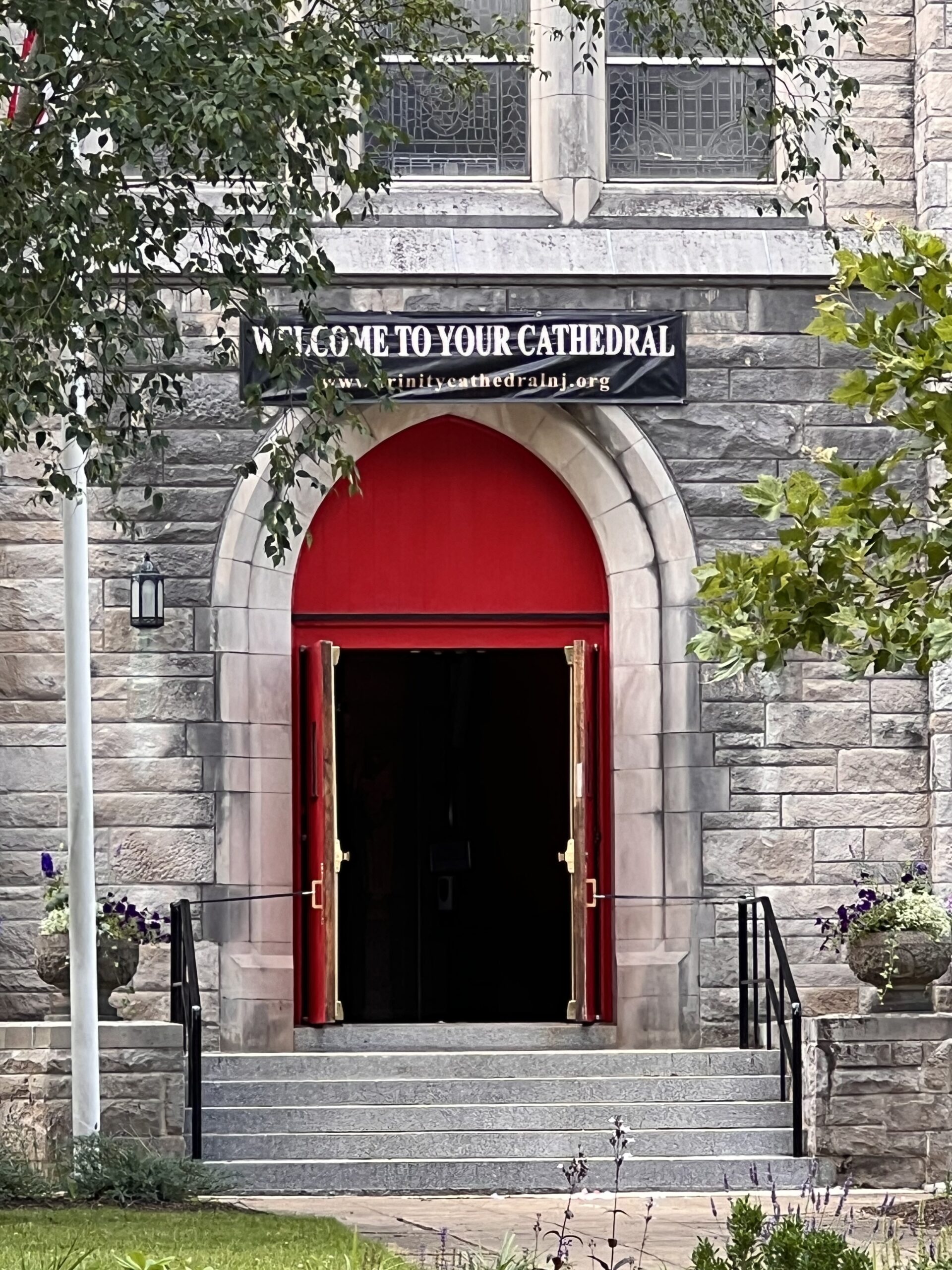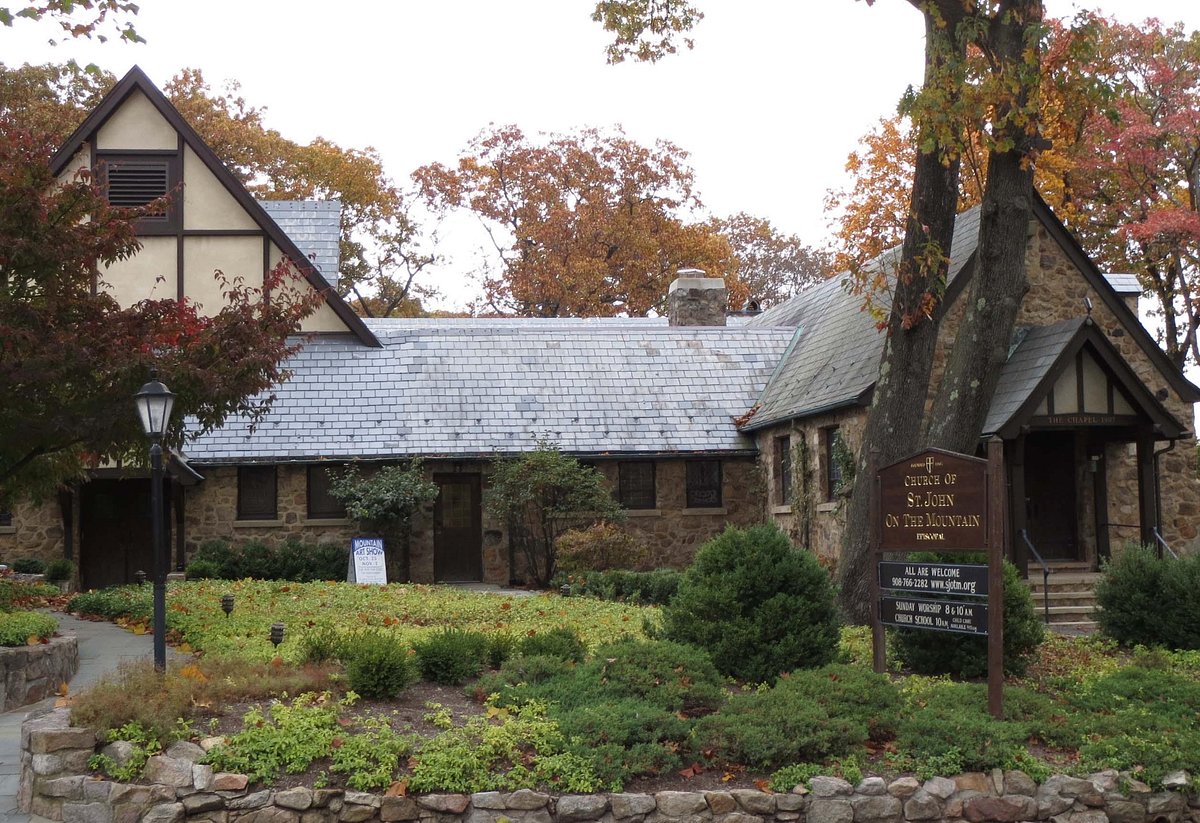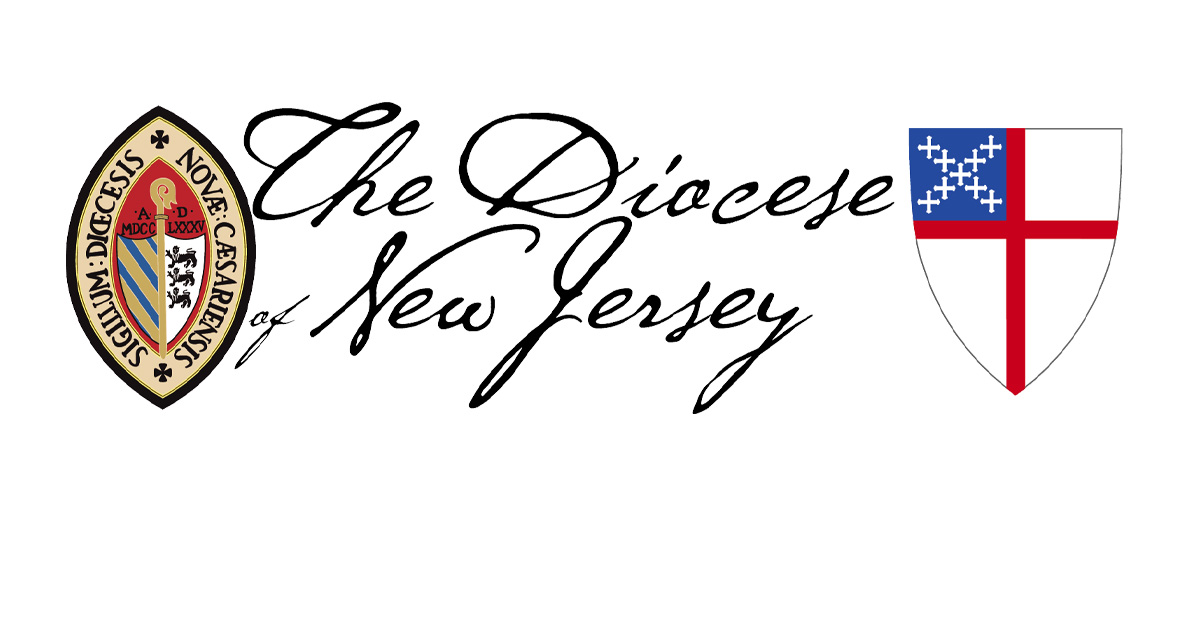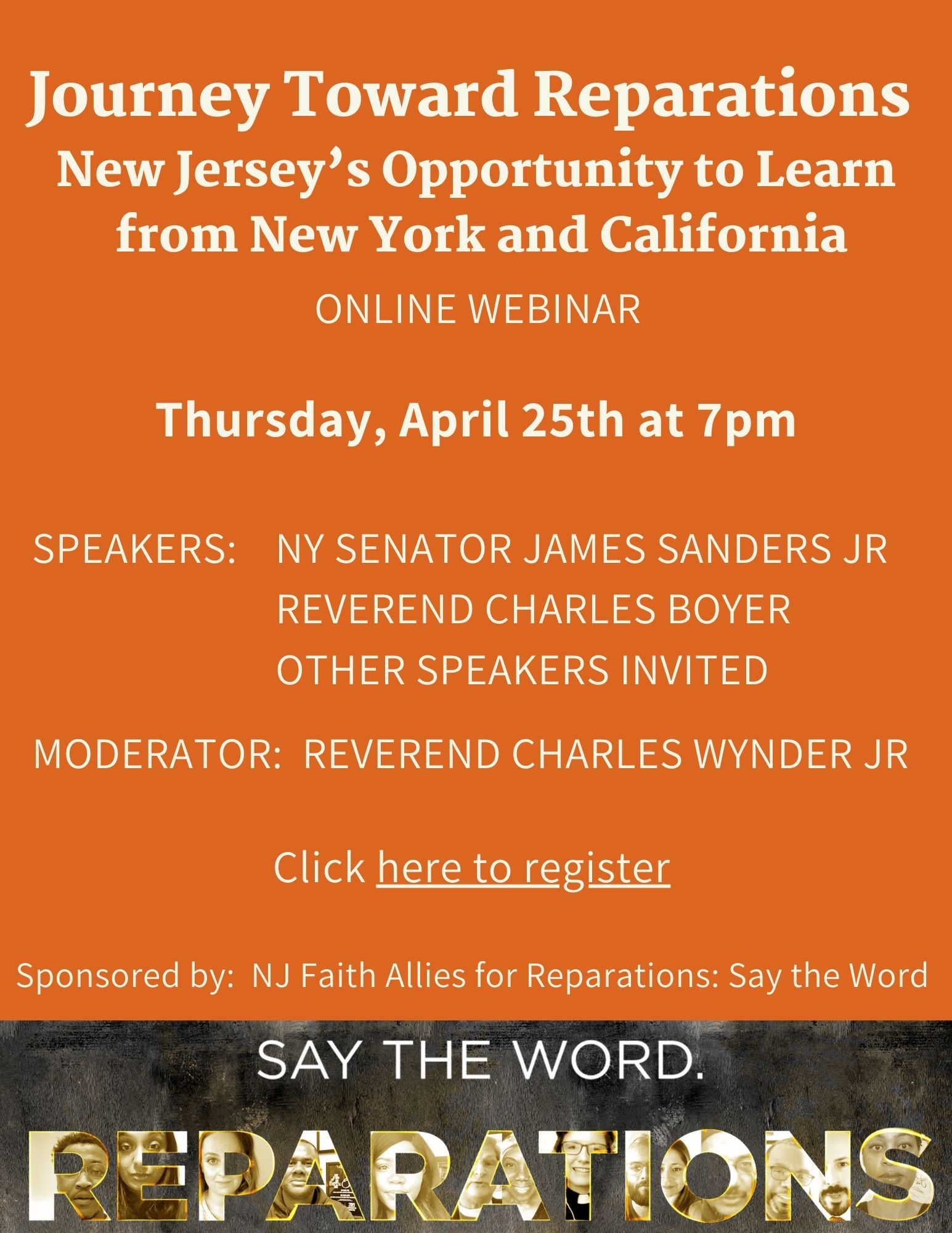and their spears into pruning-hooks;
nation shall not lift up sword against nation,
neither shall they learn war any more.
Dear People and Friends of the Diocese of New Jersey,
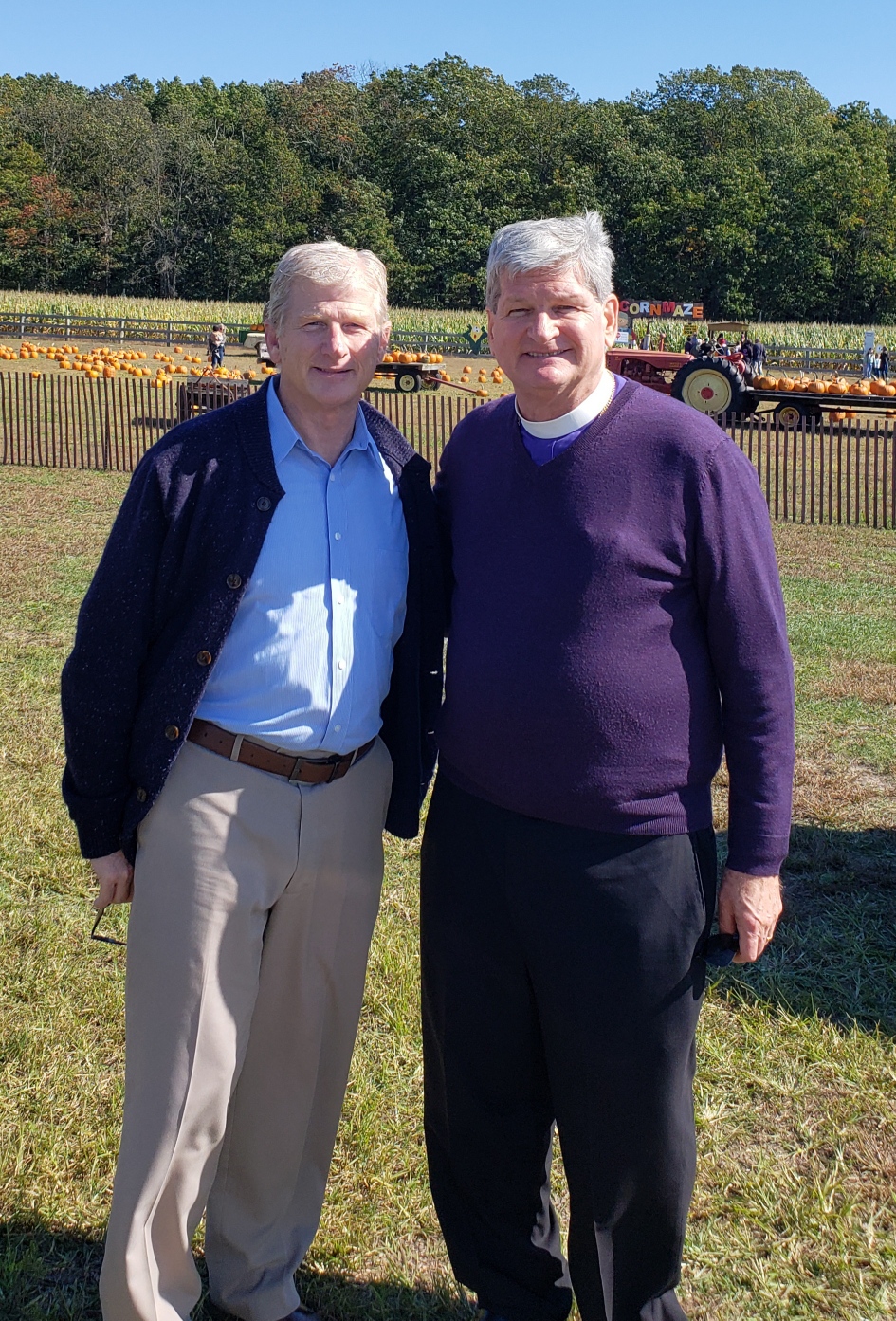
I spoke with my twin brother, Fritz, yesterday. Yes, that’s his nickname. Like me, he’s had his nickname since birth. Our mother has a strange sense of humor and thought it would be clever to name her twin boys “Fritz and Chips.” It stuck.
When I called my brother, he and his wife Kathy were waiting to learn the results of his most recent CAT scan from his radiologist. Fritz was diagnosed with colorectal cancer a few years ago and had extensive surgery to remove a significant portion of the affected area of his colon. He has been in remission since then. CAT scans and regular visits to the radiologist are now, however, part of his regular routine.
Fritz served in the United States Marine Corps for 16 ½ years. He mustered out when the Marine Corps was “downsizing” in the mid-1990s. His years of service included a tour of duty in Okinawa as well as combat duty during the first Gulf War. He was in Saudi Arabia as a combat electrician for 6 ½ months. For 5 ½ months of this time, he was billeted adjacent to a so-called “burn pit.”
As the American Cancer Society explains:
A burn pit is an approach to waste disposal that has been used by the US military at bases in the Middle East, mainly in Afghanistan and Iraq beginning in 2001 [NB. They were in use well before this. Their use in the Gulf War has been well documented].[1] Burn pits are large areas where tons of waste products (including trash, plastics, wood, metal, paints, solvents, munitions, and medical and human waste) are burned in the open air. Typically, JP-8 jet fuel, which contains benzene, has been used as an accelerant. Burn pits create large volumes of toxic smoke and other substances. They give off more air pollution than contained burning, because the burning takes place in an open area and at lower temperatures.[2]
I asked my brother some time ago if his cancer was related to his military service. “Absolutely!” he replied. Recently, the United States Government affirmed this.
On August 10, 2022, President Biden signed the bipartisan Sergeant First Class Heath Robinson Honoring our Promise to Address Comprehensive Toxics Act—also known as “The PACT Act”—into law. The PACT Acts represents a wide expansion of coverage to a large number of veterans who were exposed to toxins as a result of their military service.
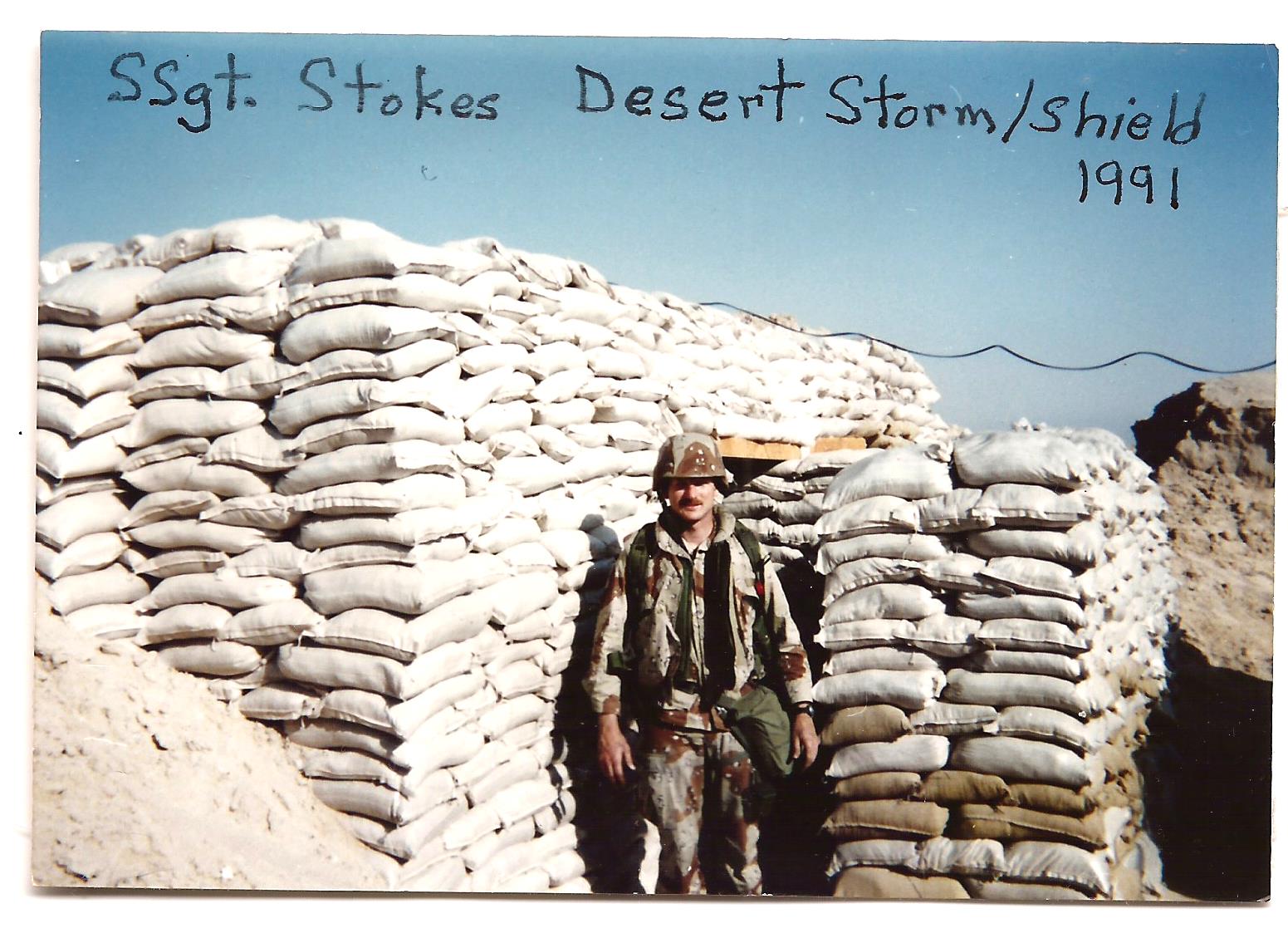 When I spoke with my brother yesterday, I asked him what he felt were the greatest challenges that faced veterans today. His immediate response was “being denied benefits.” When Fritz was first diagnosed with colon cancer, he was denied disability benefits for this from the Veterans Administration because “colon cancer” had not been noted on his military record.
When I spoke with my brother yesterday, I asked him what he felt were the greatest challenges that faced veterans today. His immediate response was “being denied benefits.” When Fritz was first diagnosed with colon cancer, he was denied disability benefits for this from the Veterans Administration because “colon cancer” had not been noted on his military record.
As with many, many veterans, the burden of proving that this cancer, or in the case of other veterans other cancers and illnesses, was the result of, or related to, their military service was placed upon my brother and those affected veterans. The working “presumption” was that the cancer or other illness was not related to the veteran’s military service.
With passage of the PACT Act, this was changed. Now, my brother’s cancer, and the cancers and illnesses suffered by many veterans of the Gulf War, the War in Iraq, and the War in Afghanistan, are considered “Presumptive Conditions.”[3] As a result, these veterans qualify for health and disability benefits they had previously been denied. Thanks be to God. This is only right.
Today’s is Veterans Day. It’s a day when we as a nation are called to honor those who have served in the Armed Forces of our nation in times of peace and in times of war. Too often this day passes with only superficial recognitions. Many veterans have paid a very high cost for serving this country. Some live with compromised health. Some have lost limbs and/or their mobility. Others experience PTSD and other serious mental health challenges. Many are homeless.
These veterans deserve more from us all. Passage of the PACT Act was certainly an important step in the right direction. We can advocate for additional policies that will support veterans such as those found Additionally, supporting not-for-profit agencies such as the Wounded Warrior Project or, more locally, the New Jersey Veterans Network is another way to say thank you. Certainly, our churches can provide supportive communities of prayer and fellowship for veterans and help steer them to appropriate community resources for help when they need it.
The Presidential Proclamation on Veterans Day 2022 captures the meaning of this day and urges our appropriate response when it says:
In every generation, America’s veterans have been willing to give all for that which we hold sacred—freedom, justice, and democracy. They have served selflessly, sacrificed greatly, and shouldered the burden of freedom quietly, asking no glory for themselves. Today, let us honor them by living up to their example—putting service before self, caring for our neighbors, and working passionately to build a more perfect Union worthy of all those who protect our lives and liberty.
Amen. And let us always pray for peace and for that day blessed day when war will cease in all the world (Psalm 46:10). Oh, I am pleased to report that Fritz’s CAT scan was clean. Thanks be to God. That’s great news on this Veterans Day. Thank you to him and to all who have served our nation as members of the armed forces.
Blessings and peace, The Right Rev. William H. (Chip) Stokes
The Right Rev. William H. (Chip) Stokes
Bishop of New Jersey
________________________
Notes
[1] See “Burn pit” subsection “Duration” on Wikipedia which states, “Burn pits were used during Operation Desert Shield and Desert Storm.” This can be found at Burn pit – Wikipedia
[2] See “Military Burn Pits and Cancer Risk” – The American Cancer Society website found at Military Burn Pits and Cancer Risk


